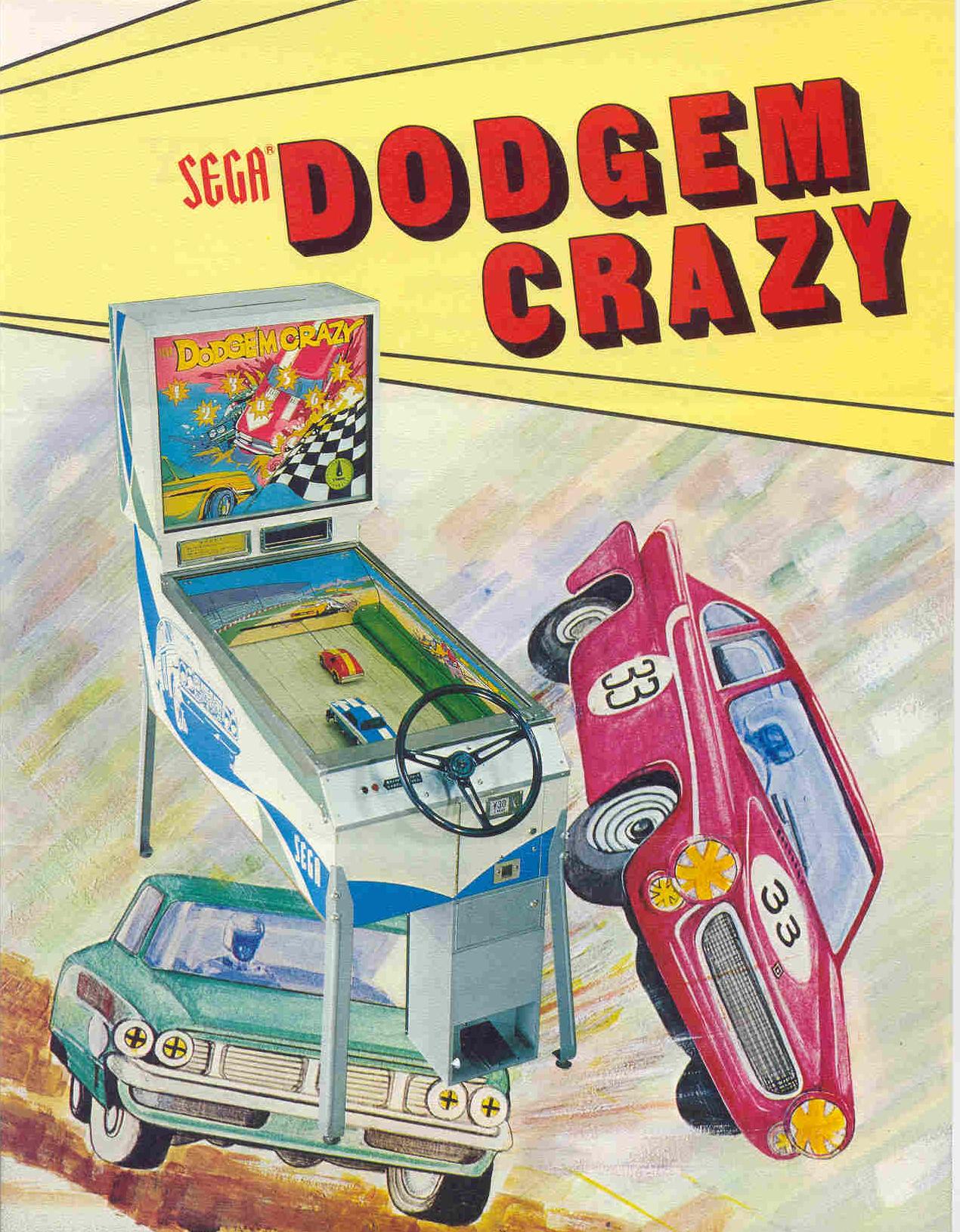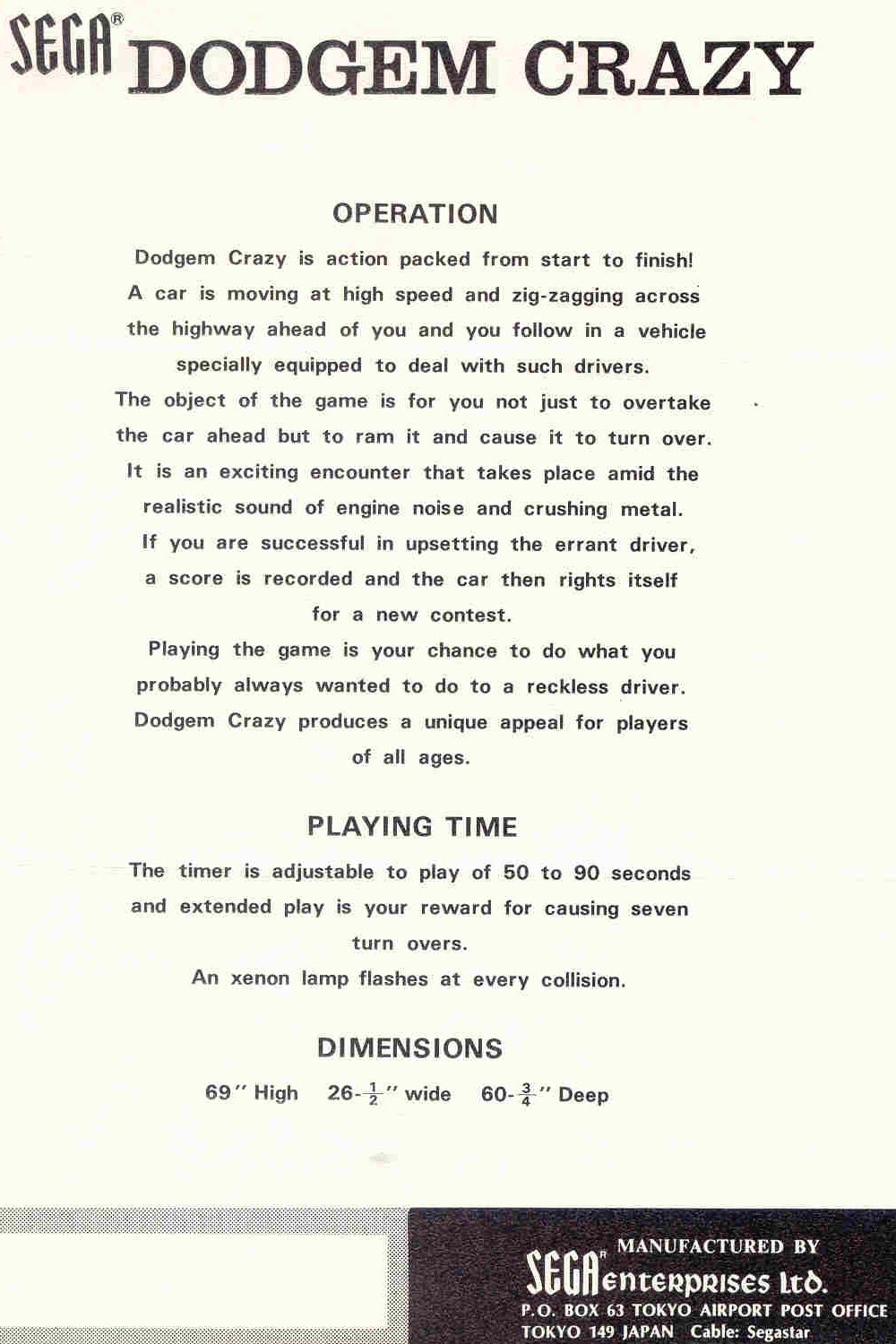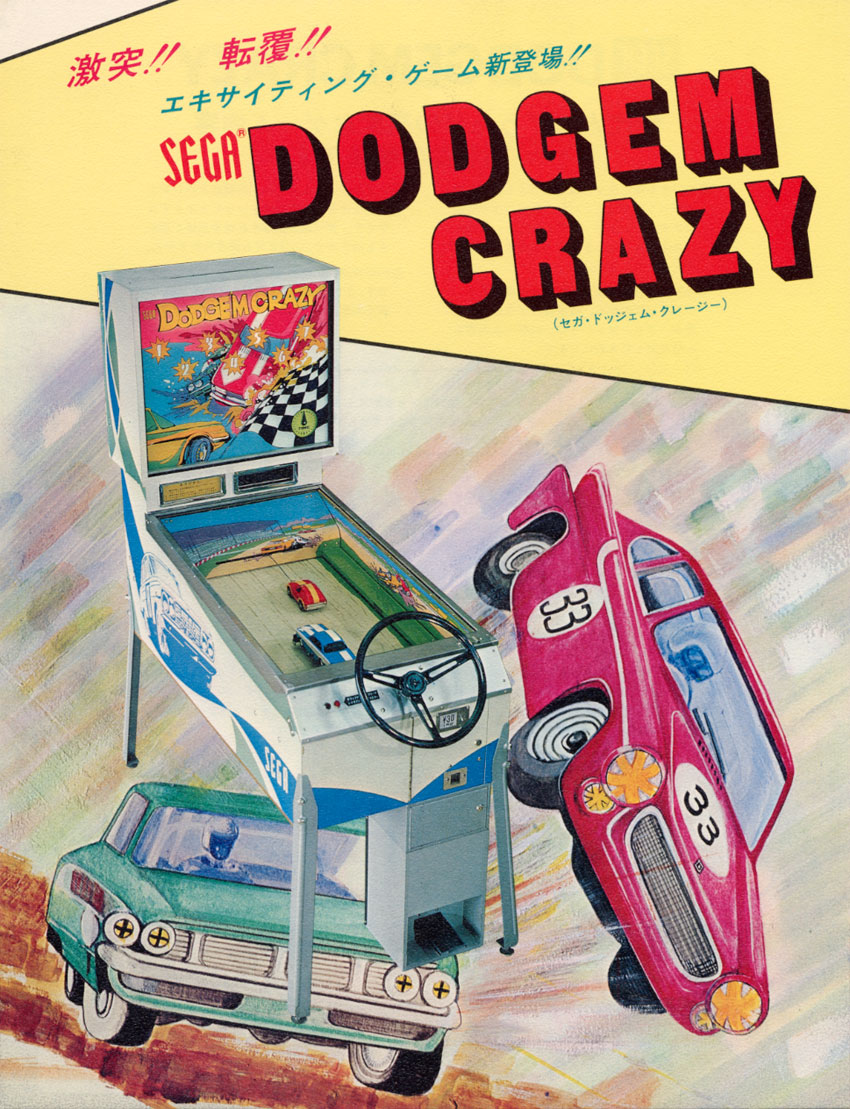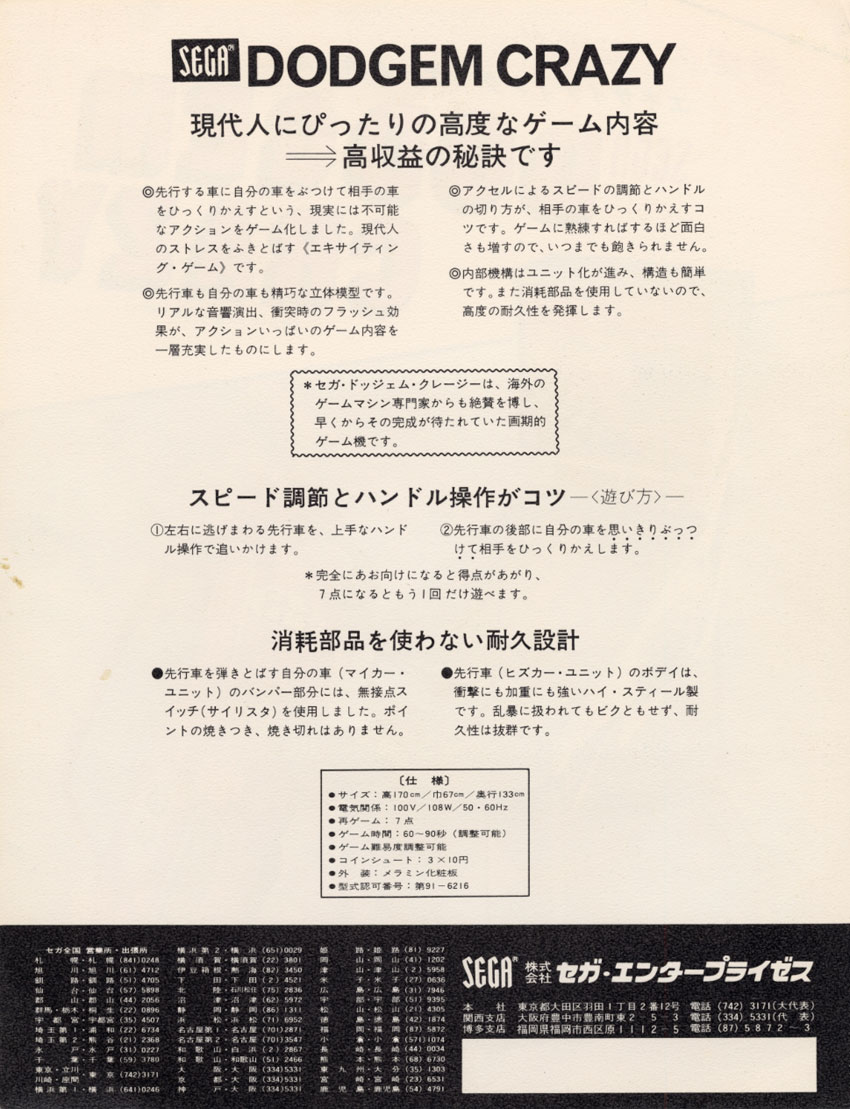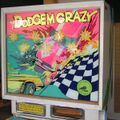Difference between revisions of "Dodgem Crazy"
From Sega Retro
m (Text replacement - "| system={{Arcade}} Electro-mechanical" to "| system=Electro-mechanical arcade") |
|||
| (6 intermediate revisions by 3 users not shown) | |||
| Line 1: | Line 1: | ||
{{Bob | {{Bob | ||
| image=Dodgem machine1.jpg | | image=Dodgem machine1.jpg | ||
| − | | publisher=[[Sega]] | + | | publisher=[[Sega Enterprises, Ltd.]] |
| − | | developer=[[Sega]] | + | | developer=[[Sega Enterprises, Ltd.]] |
| system=Electro-mechanical arcade | | system=Electro-mechanical arcade | ||
| players=1 | | players=1 | ||
| genre= | | genre= | ||
| releases={{releasesArcade | | releases={{releasesArcade | ||
| + | | em_date_jp=1970{{ref|https://web.archive.org/web/20230819003054/http://thetastates.com/eremeka/1970s.html}} | ||
| + | | em_rrp_jp=270,000{{fileref|1977SegaPriceList JP.pdf|page=7}} | ||
| em_date_us=1972 | | em_date_us=1972 | ||
| − | |||
}} | }} | ||
}} | }} | ||
| − | {{sub-stub}}'''''{{PAGENAME}}''''' (セガ・ドッジェム・クレイジー) is a | + | {{sub-stub}}'''''{{PAGENAME}}''''' (セガ・ドッジェム・クレイジー) is a 1970 electro-mechanical arcade car game by [[Sega Enterprises, Ltd.]] |
Reminiscent of the ''Burnout'' series of video games, the objective is to roll over the game's car by ramming it with the one the player controls, thus scoring a "hit" (seven hits maximum). This is accomplished in a set time (timer clock located in score glass). As the player presses the accelerator pedal with his foot, the two cars can ram. The player's car has a solenoid-driven bumper to give the game's car a hard hit. If the game's car flips over, an internal switch inside the car closes and registers a "hit" on the score glass. | Reminiscent of the ''Burnout'' series of video games, the objective is to roll over the game's car by ramming it with the one the player controls, thus scoring a "hit" (seven hits maximum). This is accomplished in a set time (timer clock located in score glass). As the player presses the accelerator pedal with his foot, the two cars can ram. The player's car has a solenoid-driven bumper to give the game's car a hard hit. If the game's car flips over, an internal switch inside the car closes and registers a "hit" on the score glass. | ||
| Line 17: | Line 18: | ||
The cars seem like they move because they are ridding on a large moving conveyor belt. The game car moves closer to the player's car when the cable attaching to the game's car gets more slack (as the player accelerates). Also the game can control left and right movement of its car (as can the player control their car via the steering wheel). The cabinet has a cracker chute in the back board which acts as a speaker outlet for the 8-track tape player. | The cars seem like they move because they are ridding on a large moving conveyor belt. The game car moves closer to the player's car when the cable attaching to the game's car gets more slack (as the player accelerates). Also the game can control left and right movement of its car (as can the player control their car via the steering wheel). The cabinet has a cracker chute in the back board which acts as a speaker outlet for the 8-track tape player. | ||
| − | The cabinet is the same as the 1970 Sega ''[[Stunt Car]]''. | + | The cabinet is the same as the 1970 Sega arcade game ''[[Stunt Car]]''. ''Dodgem Crazy'' is the earliest example of a combat driving game. It predates the first combat racing video game, Taito's ''Crashing Race'' (1976). |
==Specifications== | ==Specifications== | ||
Revision as of 18:36, 17 November 2024
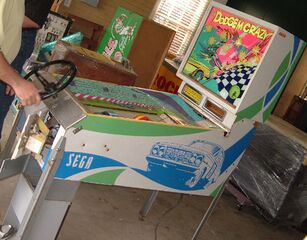
| |||||||||||||
| Dodgem Crazy | |||||||||||||
|---|---|---|---|---|---|---|---|---|---|---|---|---|---|
| System(s): Electro-mechanical arcade | |||||||||||||
| Publisher: Sega Enterprises, Ltd. | |||||||||||||
| Developer: Sega Enterprises, Ltd. | |||||||||||||
| Number of players: 1 | |||||||||||||
|
This teeny-tiny article needs some work. You can help us by expanding it.
Dodgem Crazy (セガ・ドッジェム・クレイジー) is a 1970 electro-mechanical arcade car game by Sega Enterprises, Ltd.
Reminiscent of the Burnout series of video games, the objective is to roll over the game's car by ramming it with the one the player controls, thus scoring a "hit" (seven hits maximum). This is accomplished in a set time (timer clock located in score glass). As the player presses the accelerator pedal with his foot, the two cars can ram. The player's car has a solenoid-driven bumper to give the game's car a hard hit. If the game's car flips over, an internal switch inside the car closes and registers a "hit" on the score glass.
The cars seem like they move because they are ridding on a large moving conveyor belt. The game car moves closer to the player's car when the cable attaching to the game's car gets more slack (as the player accelerates). Also the game can control left and right movement of its car (as can the player control their car via the steering wheel). The cabinet has a cracker chute in the back board which acts as a speaker outlet for the 8-track tape player.
The cabinet is the same as the 1970 Sega arcade game Stunt Car. Dodgem Crazy is the earliest example of a combat driving game. It predates the first combat racing video game, Taito's Crashing Race (1976).
Specifications
Dimensions
Promotional material
Photo gallery
References
- ↑ 1977 Sega Price List, page 7
- ↑ http://thetastates.com/eremeka/1970s.html (Wayback Machine: 2023-08-19 00:30)

